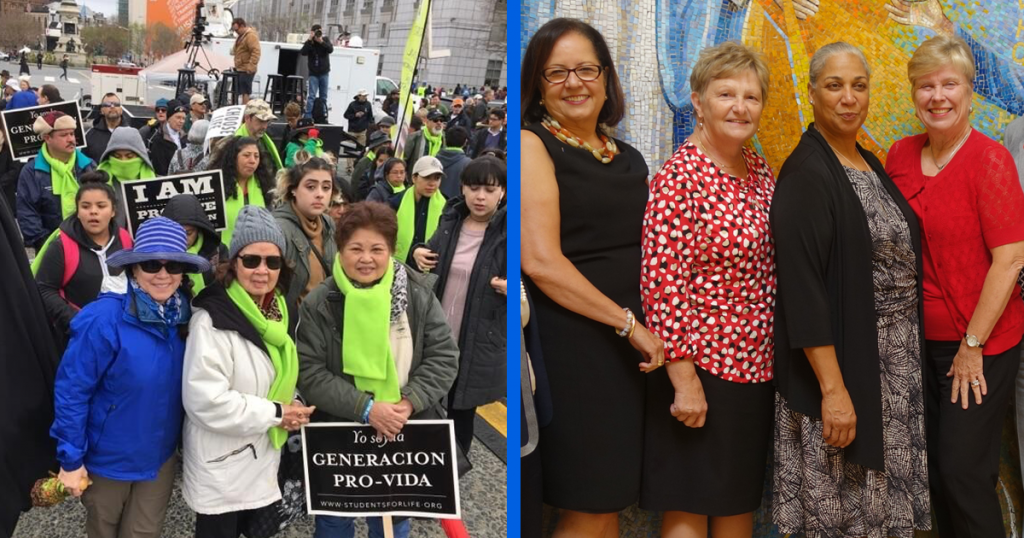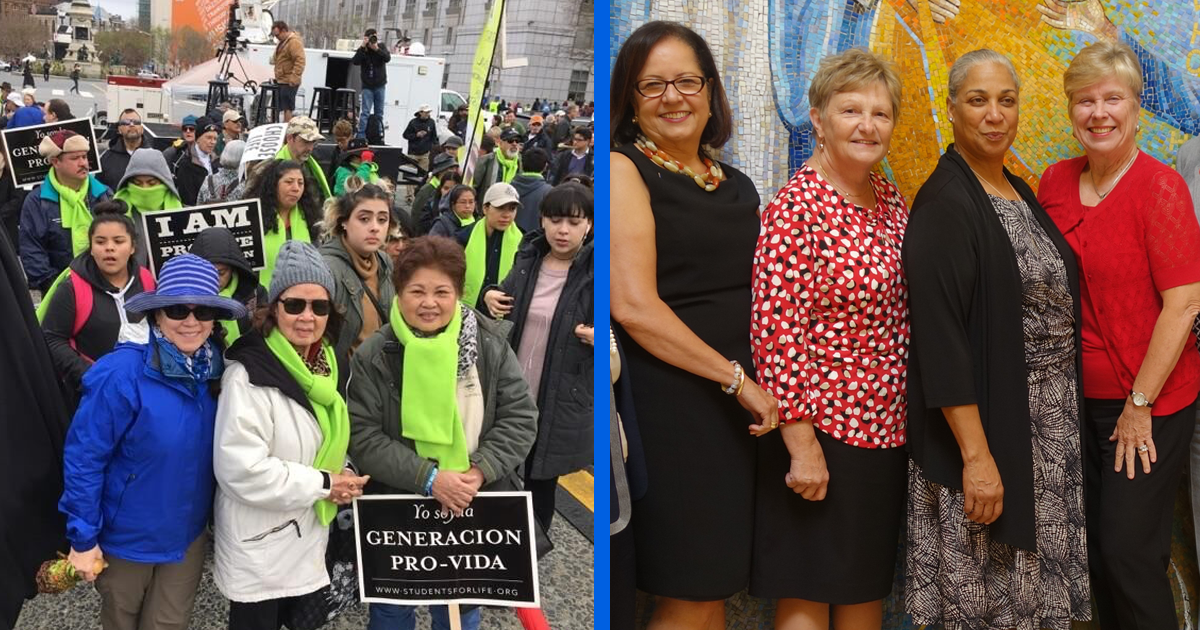Ladies of Charity – Primer on Advocacy
The Ladies of Charity present 8 quick answers to “What is advocacy?”

Browsing the Ladies of Charity USA website, Advocacy updates
Advocacy (n) The act of pleading or arguing in favor of something, such as a cause, idea, or policy; active support. From the Latin: ad = to; and voc = voice: To add voice.
Advocacy. Dictionary.com. The American Heritage® Dictionary of the English Language, Fourth Edition. Houghton Mifflin Company, 2004. http://dictionary.reference.com/browse/Advocacy (accessed: July 27, 2009).
For over 150 years, the Ladies of Charity USA have been committed to loving and assisting people who are poor. In the beginning of the 21st century, we seek ways to continue the mission of St. Vincent de Paul and St. Louise de Marillac, reweaving the fabric of society by partnering with poor people and others in works of charity and justice. Advocacy is a word used to describe some of the ways we extend our efforts beyond serving the immediate needs of the poor. It is associated with perspectives of justice and human rights.
Advocacy can be defined or described as taking the side of the poor and oppressed. It is active, not passive. It is rooted in our love of God or as St. Vincent said, “Let us love God, but let it be with the strength of our arms and the sweat of our brow.” Advocacy is a word that describes the ways we can effect change, working with people who live in poverty to change not only their personal situation but the systems that have contributed to their personal situation. Advocacy is how we fulfill our mandate to engage in “social” and “political” charity. Advocacy takes many forms:
- It is giving a person the opportunity to tell her story to us, helping us understand her situation.
- It is structuring services so that they protect human dignity and making sure they are adequately funded by philanthropic and governmental sources.
- It is defending the poor against false allegations and stereotypical innuendos of “blaming the victim.”
- It is educating ourselves and others about the challenges facing the least, the lost and the left out in society.
- It is gathering data that can be used by policy makers.
- It is using our votes and our voices in the public square to help people who are poor to achieve basic social, economic and political rights.
- It is convening policy makers, legislators, and people who are poor to enable and empower poor people to participate and to build better communities.
- It is giving bread to a hungry person and not being afraid to ask:
- Why are people poor?
- Why do they need this bread?
- What is the most just way to make sure that people have bread—in advocacy language, the basic human right to food?
Advocacy is not complicated … it does offer more than bandaids. It is an integral part of systemic change that Pope St. John Paul called the followers of Vincent to strive for when he said
“…search out more than ever, with boldness, humility and skill, the causes of poverty and encourage short and long-term solutions; adaptable and effective concrete solutions. By doing so, you will work for the credibility of the Gospel and of the Church. Without waiting further, however, live close to the poor and see to it that the Good News of Jesus Christ is never lacking to them.”
June 30, 1986

Photos: courtesy of Ladies of Charity USA







0 Comments